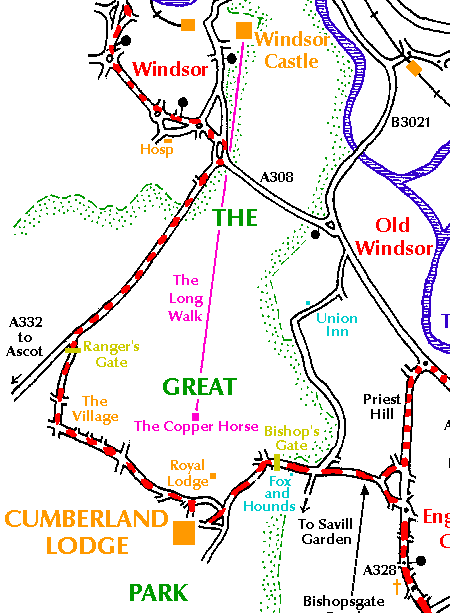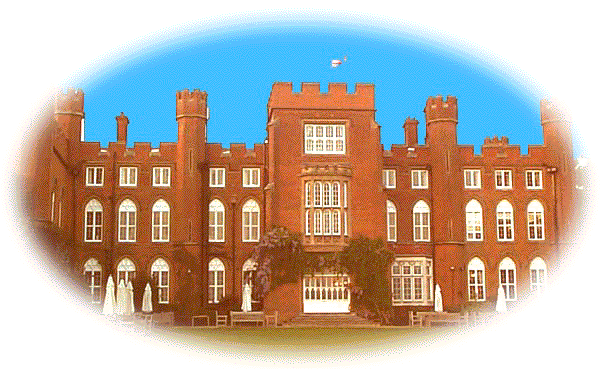|
8th Annual Meeting of the International Society for the
History of the Neurosciences (ISHN)
and the 9th Meeting of the European Club for
the History of Neurology (ECHN)
Monday, 7 July - Thursday, 10 July 2003
The 8th annual meeting of the International Society for the History of the Neurosciences (ISHN) and the 9th meeting of the European Club for the History of Neurology (ECHN) will be held at Cumberland Lodge in Windsor Great Park from Monday, 7 July to Thursday, 10 July 2003. The ISHN encourages contributions about all of the history of all of the neurosciences, including basic and clinical specialties, ancient and non-Western topics, technical advances, and broad social and cultural aspects. The structure of the meeting will include both platform and poster presentations as well as thematic symposia, all to be refereed by the programme committee. There will not be parallel sessions. Platform presentations are normally 15-20 minutes in duration, followed by 5-10 minutes for discussion. Poster presentations are allowed a display space approximately 1 metre wide by 1.4 metres high. Thematic symposia consist of three or four platform presentations submitted together on a specific theme. LANGUAGE: The official language of the conference is English. DEADLINE FOR SUBMISSION: 31 JANUARY 2003. The decisions of the Programme Committee will be announced by early March 2003. ABSTRACT FORMAT: Please submit your abstract on a single sheet of paper with medium to large font (e.g., Times New Roman 12 point or Arial 11 point) and wide margins (2 cm or more). Specify whether you are applying for a platform presentation, a poster presentation, or a thematic symposium. Please include the name, title, affiliation, mailing address, telephone and fax numbers, and email address of each author. E-MAIL SUBMISSION FORMAT: Abstracts may be submitted within the body or message area of an e-mail. In order to preserve italics, diacritics, etc., abstracts may also be sent as attached files in one of the following formats: (1) Rich Text Format; (2) Word 97 or earlier; or (3) Wordperfect 5.x for Windows. If you send an attachment, you must first scan the file with a recently upgraded antivirus utility, and note in the body of your e-mail message that the file was scanned and no viruses were detected (if you are unable to do this, you must send your abstract by regular mail or fax). SEND ABSTRACTS by surface mail, air mail, fax or e-mail to the Chair of the Programme Committee (and ISHN President):
Papers are expected to have at least one author who is a member of the ISHN or the ECHN. For information on membership in the ISHN, please contact the ISHN Secretary, Russell Johnson (rjohnson@library.ucla.edu), or refer to the society's website: www.ishn.org. The ISHN encourages all presenters to submit completed papers to the society's official publication, the Journal of the History of the Neurosciences: Basic and Clinical Perspectives. VENUE: Cumberland Lodge is a spacious house in Windsor Great Park, which is the property of Queen Elizabeth II. The Lodge itself was built in the 17th Century and was designated by King Charles II as the home of the Ranger of the Park. It has undergone many renovations, and the present house dates mainly from the 1870s. In 1947, King George VI granted the house as a Grace and Favour residence to St. Catharine's, a charitable foundation for educational purposes of which Queen Elizabeth The Queen Mother was Patron until her death in 2001. PROGRAMME HIGHLIGHTS AND TENTATIVE SCHEDULE:
TRANSPORTATION: Cumberland Lodge is located to the west of London, about 5 miles from Heathrow Airport, about 4 miles from Junction 13 on the M25 motorway, and about 3 miles from Egham Station, which is served by regular trains from London's Waterloo Station. If you are driving to the Lodge, refer to the website for further directions (www.cumberlandlodge.ac.uk). If you are travelling by train, information about train times in the United Kingdom can be found at www.railtrack.co.uk.  Detail from full-size map, The Way to Cumberland Lodge If you are staying overnight in London on 6-7 July, arriving at the London City Airport, or travelling by train from elsewhere in the United Kingdom, you should make for London's Waterloo Station and catch a train to Egham. A coach will be waiting at Egham Station to take participants to Cumberland Lodge at 12.00 noon on 7 July. If you are unable to join the coach, an information sheet containing the phone numbers of taxi companies in Egham will be provided. If you are travelling to the United Kingdom by Eurostar, you will arrive at the Eurostar terminal at Waterloo Station, and you can follow the instructions outlined above. If you are travelling to the United Kingdom by cross-channel ferry, you will probably arrive at another railway station in London, but you can then take a train or the Underground to either Waterloo Station or Clapham Junction Station and then follow the instructions given above. However, if you are travelling by cross-channel ferry through Newhaven, you may be able to catch a direct train to Clapham Junction, where you can then catch the connecting train to Egham. Heathrow Airport is the most convenient airport for the workshop. The easiest way to get from there to Cumberland Lodge is by booking a taxi from a taxi company in Egham. Do not take an airport taxi, which will be much more expensive. The taxi company will tell you where to wait to be collected at the airport terminal. If you are arriving at Gatwick Airport, there are two different ways of getting to the Lodge. First, there are trains every half an hour from Gatwick Airport to Clapham Junction, where you can catch a connecting train to Egham. Alternatively, you can take the airport link coach from Gatwick Airport to Heathrow Airport, and then book at taxi from Heathrow using one of the taxi companies in Egham. (Again, do not take an airport taxi.) Stansted Airport is the least convenient airport in London for the conference, but it is used by many of the budget airlines serving European cities. Once again, there are two different ways of getting to the Lodge. First, there are regular trains from Stansted Airport into London that call at Tottenham Hale Railway Station; from there you can take the Underground to Vauxhall and join another train to Egham. Alternatively, you can take the airport link coach to Heathrow Airport, and then book a taxi from Heathrow using one of the taxi companies in Egham. ACCOMMODATION: All meals and accommodation will be provided at Cumberland Lodge. There are 50 bedrooms, all of which have en suite facilities, and most of which provide shared accommodation for two participants. In order to accommodate as many participants as possible, shared accommodation is available at a much lower fee. Participants should specify whether they wish to share accommodation and, if applicable, with whom. The rooms are illustrated on the Lodge website (www.cumberlandlodge.ac.uk). Please do not refer any enquiries about accommodation to the Lodge: these must be referred to the Chair of the Organising Committee, John Richardson (J.T.E.Richardson@open.ac.uk). Accommodation will not be available at the Lodge before Monday, 7 July, or after Thursday, 10 July. We assume that many participants will wish to take the opportunity to stay elsewhere in the United Kingdom (e.g. in London, Oxford, or Windsor) either before or after the Conference. In particular, the History of Medicine Library at the Wellcome Trust (located near Euston Railway Station and Euston Square Underground Station), will be open throughout July. For information about opening hours, see www.wellcome.ac.uk/en/library/homlib/HOMlibACChrs.html. The Librarian has offered to organise a special exhibit during the morning of Friday, 11 July. ADJACENT EVENTS: Participants who are planning their conference itinerary in July 2003 may wish to know about the following events that are adjacent to the ISHN/ECHN conference:
FINANCIAL ASSISTANCE: The ISHN has allocated some limited funds to assist with travel expenses for students (pursuing any degree, undergraduate or graduate) whose abstracts have been accepted and who must travel long distances at great expense. The Programme Committee will determine the distribution of these funds based on (1) the quality of abstracts and (2) applicants' projected travel expenses, recognizing that sometimes it costs more to travel modest distances than long ones. If you wish to apply for this assistance, please include with your abstract a short paragraph of request and explanation (with your projected expenses) on a separate sheet. REGISTRATION: The following information is provisional and intended to help you to plan your budget. Further information about fees, together with registration forms, will be provided in March 2003. Registration:
The fee for accompanying persons will include their participation in evening sessions and the boat trip on the River Thames. Accommodation:
The fees for residents include all meals and refreshments from lunch on Monday, 7 July to lunch on Thursday, 10 July, plus three nights' accommodation. The charge for nonresidents includes lunches, dinners, and refreshments but not accommodation or breakfasts.
ISHN 8th Annual Meeting Announcement and Call for Abstracts http://www.ishn.org/call2003.htm Last modified: 19 November 2002
This site is maintained courtesy of the Neuroscience History Archives, Brain Research Institute, UCLA
|

